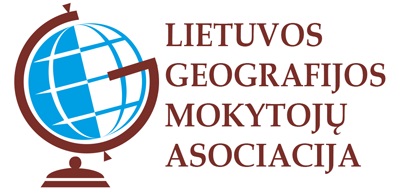Reading skills - MYLES PERRY
Klausimas #1
Young Heroes
MYLES PERRY
MYLES PERRY
In the West, we think of leprosy* as a disease that existed only in ancient times.
We may think of stories from the Bible, but we certainly don't think of it as a disease that exists now. But it does. Althougt it's quite easy to cure, there are still people suffering from it in some of the poorer countries of the world, because of lack of money, or because of ignorance. Our hero is a young man who went out to Nigeria in Africa, to help some of those sufferers. MYLES PERRY wrote for us about his experiences.
I went to Africa with the Venture Scouts. This is an organisation that creates opportunities for young people to take part in outdoor pursuits, like climbing and walking, and also to do voluntary work. I had heard that the local branch wanted to send people out to take part in a project at a leper* colony called Uzuakoli in Nigeria, and wanted to go.
Eventually, twenty-nine of us went out for three weeks, with the aim of washing and painting the patients' homes. We raised money before we went to pay for the paint and tools.
I went to Africa with the Venture Scouts. This is an organisation that creates opportunities for young people to take part in outdoor pursuits, like climbing and walking, and also to do voluntary work. I had heard that the local branch wanted to send people out to take part in a project at a leper* colony called Uzuakoli in Nigeria, and wanted to go.
Eventually, twenty-nine of us went out for three weeks, with the aim of washing and painting the patients' homes. We raised money before we went to pay for the paint and tools.
Leprosy is quite a problem in Nigeria, as it is in many other African countries. Uzuakoli is in south-east Nigeria, north of Port Harcout. It's in a very isolated spot. It was very green in the wet season when I was there, being surrounded by forests. The colony was run by a couple called Michael and Claire Meechan, for the Church of England. Due to the fear attached to leprosy, sufferers tend to be sent away from their villages, so the centre provides homes for the sufferers' families'as well. There is a school on site and various workshops so that patients can be trained in a trade, so they are better accepted back into the community after treatment.
The work we did was hard, especially in the heat, and being almost two metres tall I found all the doorways, which were less than 1.8 metres high, a constant pain in the head. It was satisfying, though, to look at a block which we'd just cleaned and repainted and compare it with its previous state, and the constant friendliness of the local people made me glad to be there. That came out in all sorts of situations. One day while I was painting I was getting a bit fed up and annoyed as I hit my head yet again on the door frame of one old man's home. Just as I was about to shout something rude, the old man, who had lost an arm and a leg, started to apologise repeatedly, saying "Sorry, sorry". Apparently this is a custom: they apologise to anyone who has had a little accident like this. Immediately any anger I felt just dropped away.
I learned a lot from the patients at Uzuakoli. They cope daily with a worse situation than we can imagine - often with smiles on their faces. I think it is they, rather than me, who classify as heroes.
Atsakymų variantai rodomi tik registruotiems sistemos eTest.lt vartotojams. Mokytojo registracija, mokinio registracija
Taškų skaičius už teisingą atsakymą: 1





